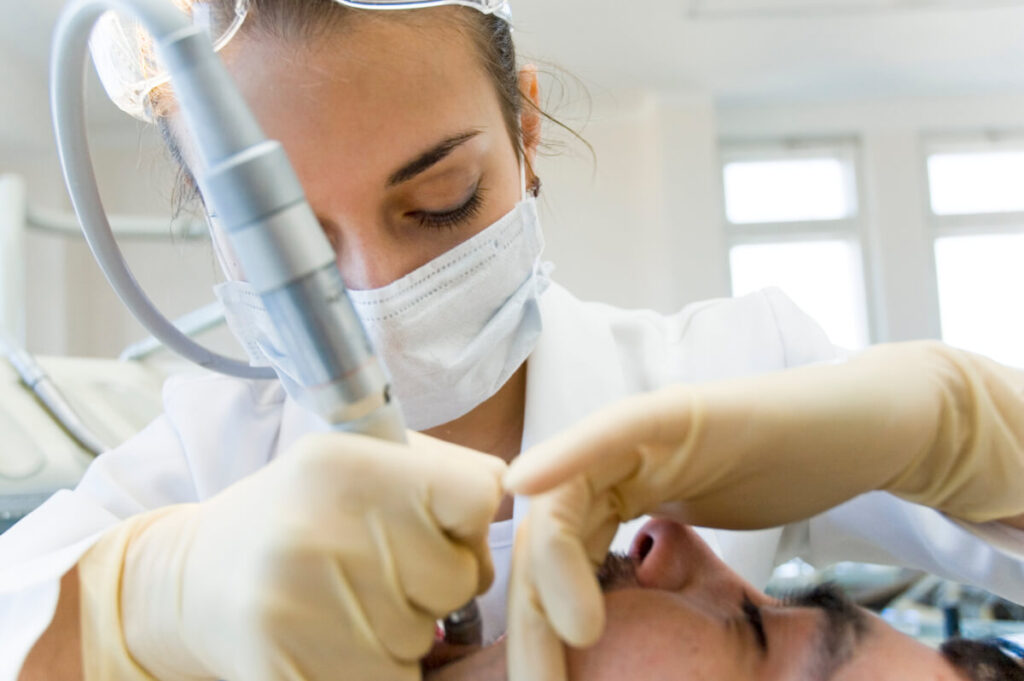Many people find going to the dentist to be an anxious experience. Fortunately, sedation dentistry procedures in Okotoks have become more widely used in recent years to allay these worries and guarantee the highest level of patient comfort.
Therefore, it is crucial to understand the principles of dental sedation as well as its varieties, advantages, risks, and the situations in which it can be used in order to empower patients.
What is Sedation Dentistry?
Utilizing medication during dental operations to help patients unwind is known as dental sedation. It promotes a state of tranquility, lessens anxiety, and relieves pain so that your dentist near you can complete the essential procedures quickly.
Patients who previously avoided or delayed dental visits out of fear and anxiety can now undergo dental procedures thanks to sedation dentistry.
Common Questions and Concerns about Sedation Dentistry
1. Is Sedation Dentistry Safe?
If you have dental anxiety or require substantial work, dental sedation may be the key to a simpler, better, and more enjoyable experience during your treatment. Sedation can be administered in a variety of ways, from laughing gas to deep sedation. However, you might be concerned about its safety if you’ve never undergone anesthesia at the dentist. It’s crucial to consult with a local, skilled dentist before choosing sedation dentistry near you.
2. Who is a Good Candidate for Sedation Dentistry?
Patients who postpone getting dental care because of dental anxiety or phobias are good candidates for sedation dentistry since these procedures can help them get over their worries and receive essential care.
Additionally, sedation is very helpful for lengthy and possibly difficult dental procedures like oral surgery, dental implant placements, or full-mouth reconstructions since it helps to ensure your comfort and cooperation.
3. How Does Dental Sedation Work?
Your dentist in Okotoks will first perform a thorough assessment of your medical history, including allergies, current medications, and any pre-existing health concerns, before providing any sort of sedation. This evaluation protects your safety while assisting them in choosing the best sedation technique for your care.
The dangers, advantages, and viable alternatives to sedation will also be covered in detail by your dentist. By giving your informed permission, you confirm that you have a thorough understanding of the sedation procedure and have raised any questions or concerns you may have. You could be told not to eat or drink anything for a specified amount of time before your treatment. Your vital indicators, including blood pressure, heart rate, and oxygen levels, are carefully watched during the treatment to guarantee your safety after you arrive for your surgery and receive your anesthesia.
4. Are There Any Side Effects Related to Sedation?
Listed below are some symptoms that may arise when you choose to undergo dental sedation. If you experience any of these side effects and they continue to persist long after your appointment, be sure to talk to your dentist right away.
- Allergic Reactions – Although uncommon, some people may have allergic reactions to particular sedatives. Before using any sedative, your dentist will thoroughly review your medical history and any potential allergies.
- Drug Interactions – It’s crucial that you give your dentist a complete list of all the prescription drugs, over-the-counter vitamins, and herbal medicines you currently use. Sedatives and some drugs may interact, impairing their effectiveness or producing undesirable consequences.
- Diverse Symptoms – Each sedation technique has distinct adverse effects, such as fatigue, nausea, dizziness, or headaches. Your dentist will ensure informed consent by letting you know about any potential side effects linked to the sedation technique you’ve chosen.
Dental professionals that use sedation dentistry follow strict safety procedures. Monitoring. They keep a tight eye on your vital signs the entire time, assuring a secure sedation.
5. What Should You Do After Getting Sedation for a Dental Procedure?
You might need some time to recover from the effects of the sedative after your dental procedure. A responsible adult should accompany you home and offer support if necessary.
You may still feel the effects of the sedation, such as moderate confusion or drowsiness, depending on the type and level of sedation you had. To facilitate a quick recovery, dentists offer post-operative advice and guidelines.
To check on your recovery and address any issues you may have following the operation, you might also need to make follow-up consultations with your dentist. Dentists offer detailed advice on oral hygiene and medicines, if required.
Have Questions or Concerns?
If you have any more questions, you can reach out to Cornerstone Dental Wellness, our dentist will be happy to help. Don’t hesitate to reach out to us today!


